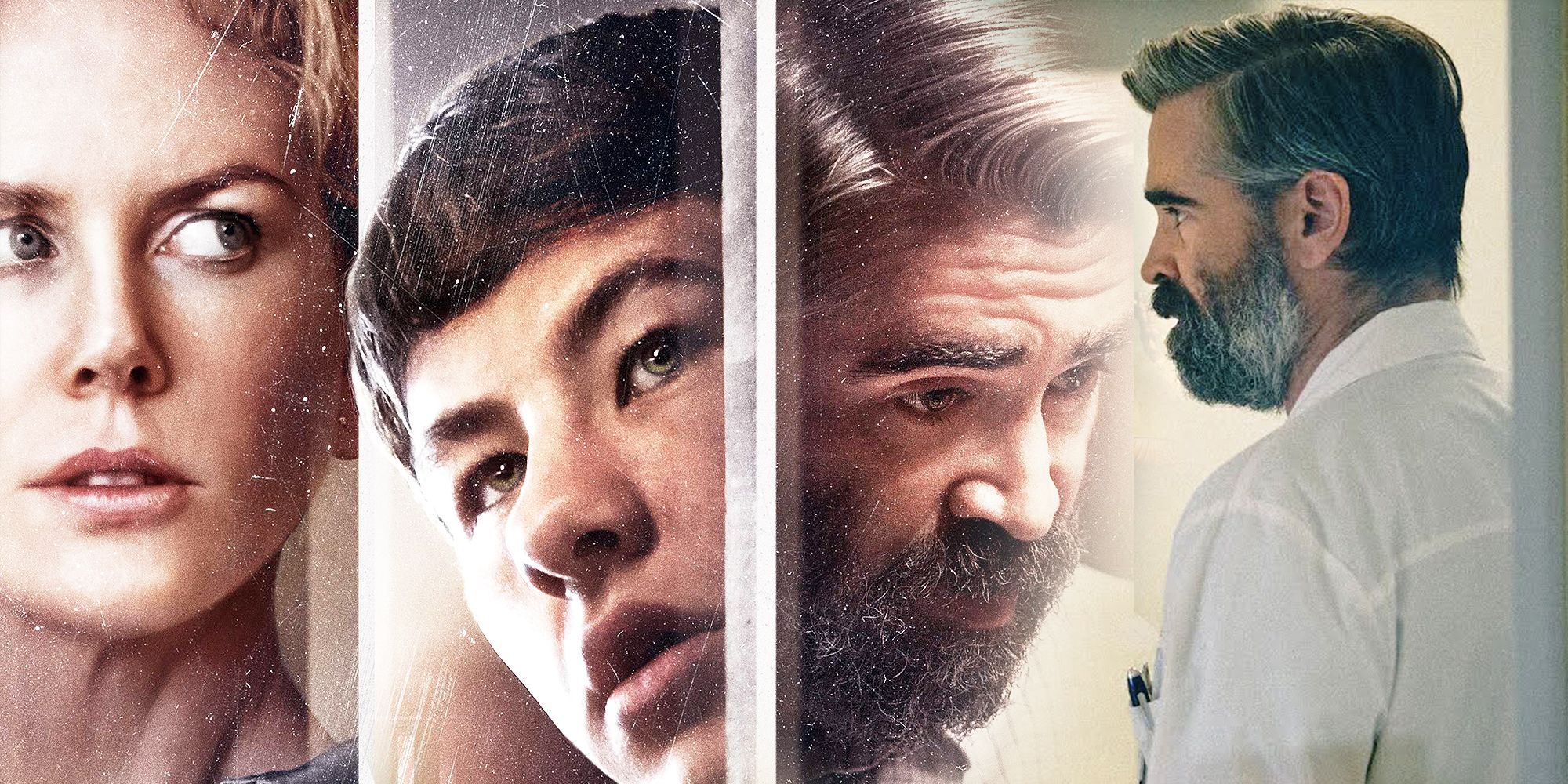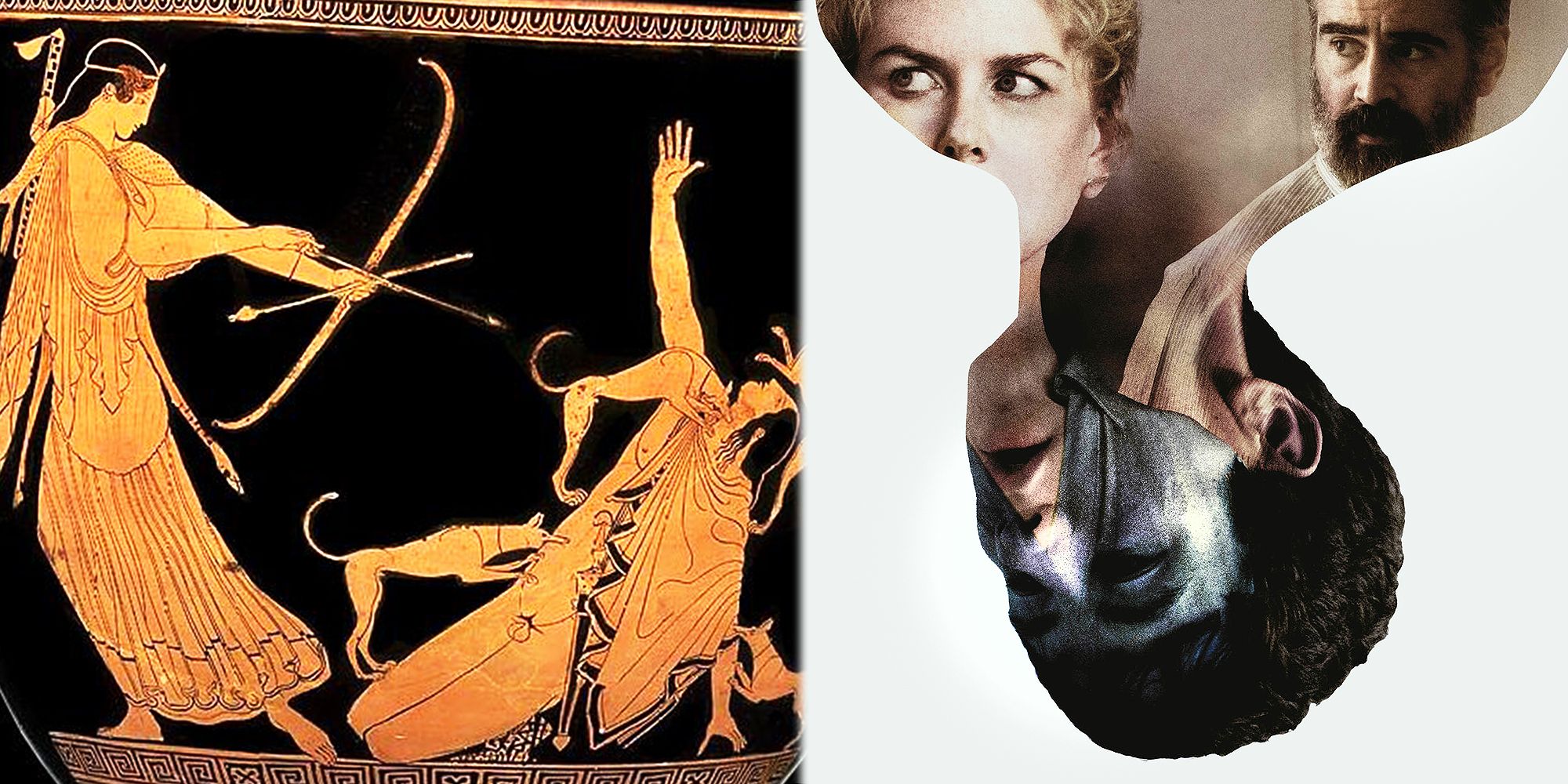The Killing Of A Sacred Deer's Greek Tragedy Inspiration Explained

The Killing of a Sacred Deer puts an unnerving spin on the Greek tragedy it's based on. The first display of director Yorgos Lanthimos' cerebral narrative style came in 2008 with Dogtooth, a disturbing look at the themes of control and manipulation, followed by the 2015 dark comedy The Lobster, which explored free will and personal relationships. With The Killing of a Sacred Deer, Lanthimos explores sacrifice and retribution with his dark brand of magical realism in his adaptation of Euripides ' classical Greek tragedy Iphigenia at Aulis.
Due to its mythological nature, the tragedy of Iphigenia allows for flexible interpretations, but The Killing of a Sacred Deer does a great job at adapting the basic story and its themes. The movie's title references the detonator of the Greek tale, as Agamemnon, King of Mycenae, finds himself forced to sacrifice his eldest daughter Iphigenia to Artemis, goddess of the hunt, after accidentally killing a deer. In Greek mythology, deer are sacred animals to Artemis, and no amount of earthly power is enough to bargain successfully with the deity. As Agamemnon loses faith in averting the inevitable, Iphigenia accepts her fate and agrees to be sacrificed, only to turn into a deer at the last second. Artemis, who has forgiven her father's mistake, still takes Iphigenia with her.
The characters in The Killing of a Sacred Deer are faithful to the source material. Steven Murphy (Colin Farrell) goes through the same internal transformation as Agamemnon, from a powerful figure — surgeon in Steven's case, King in Agamemnon's — to a victim of a supernatural entity's retaliation. Steve kills Martin's (Barry Keoghan) father by accident at the operating table and fails to avert the inevitable when Martin, who fills the role of Artemis, pressures him to choose between the slow and painful death of his family or the sacrifice of a single family member. Steven's wife (Nicole Kidman) witnesses her life break apart due to the arrangement, as Clytemnestra did, while Steven slowly loses faith in getting help, or at least a reasonable explanation, from the doctors who treat his ailing child, just like Agamemnon sought the help of the mighty Achilles.

The most notable difference is that Steven's older daughter Kim (Raffey Cassidy) does resemble Iphigenia, but it's Colin's young son Bob (Sunny Suljic) who's destined to be sacrificed from the beginning. Proof of his tragic fate is his bleeding eyes once Steven relents to Martin's vengeful curse. Although not completely equivalent, Bob needs to meet the same Martin's dead father like Iphigenia needed to pass on as the deer that Agamemnon had killed. Kim's fleeting relationship with Martin is also a new addition that makes the myth an even more engaging psychological horror. It provides Martin with a false sense of vulnerability that Artemis lacks, and leads the viewer to believe that Martin still has a speck of humanity that could help spare Steven's family, which imbues the film with an interesting sense of mistrust.
Another difference comes in the movie's climax and resolution. By this point, it's evident that Martin really has supernatural abilities despite the movie's modern and realistic setting. Martin is less impartial than Artemis, as he offers Steven not to kill one of his children, but to kill one of his family members at random. Steven suffers through the process as he misses each shot of his gun in a desperate attempt to get it over with, as opposed to the solemn ritual of Iphigenia's sacrifice at the altar. Like in the original tale, the agreement is fulfilled, and Bob dies to lift the curse. However, The Killing of a Sacred Deer's ending feels much less idealistic than the tale, which fits perfectly its core themes.
In The Killing of a Sacred Deer, Yorgos Lanthimos doubles down on the psychological aspects of Euripides' tale. Many details derive a different meaning with each rewatch, and the ones that appear clear in one session seem completely different in the next. This way, Lanthimos manages to distance the movie from the Greek tragedy to craft a new story, but at the same time creates a much more faithful adaptation of a classic Greek tale than many other cinematic attempts.
from ScreenRant - Feed
